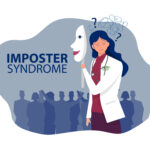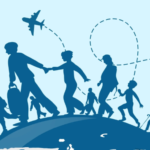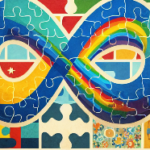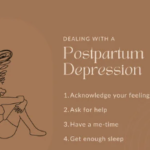As a concerned citizen, you may have noticed the rising tide of mental health issues among youth in Africa, particularly in Nigeria. The pressures of modern life, social media, unemployment, and educational stress are increasingly affecting the mental well-being of young people. This article aims to delve into the challenges they face, particularly regarding autism, while offering practical solutions that you can advocate for and support within your community.
The Current Landscape of Youth Mental Health
Recent studies reveal alarming trends: approximately 10% of children and adolescents in Nigeria experience mental health disorders, yet fewer than 10% receive the necessary treatment.
To learn more, you can also read the World Health Organization publication, Mental Health Atlas 2020 Country Profile: Nigeria.
Autism Spectrum Disorder (ASD) is one significant area of concern, with an estimated prevalence of 1 in 100 children in Nigeria (Baiyewu et al., 2020). The stigma surrounding mental health and developmental disorders often leads to neglect and misunderstanding within families and communities.
Youth today face a barrage of challenges, and these pressures are magnified by social media. Research shows that excessive use of social platforms can exacerbate feelings of inadequacy and anxiety.
What about the educational stress? This also plays a critical role, with students feeling overwhelmed by the need to excel academically in an increasingly competitive environment.
Coupled with high unemployment rates hovering around 33% for youth in Nigeria, according to the National Bureau of Statistics, 2023, these factors create a perfect storm for mental health crises among young people.
Understanding the Reality of Living with Autism
For families affected by autism, the journey can be particularly isolating. You may have seen firsthand how autism manifests in various forms—communication challenges, sensory sensitivities, and social difficulties.
These realities can lead to significant mental health struggles, both for individuals with autism and their families.
Consider the voice of a mother who has navigated the complexities of raising a child with autism in Nigeria. She may share stories of discrimination and misunderstanding from the community, which exacerbate her child’s challenges.
These experiences are all too common, and they highlight the need for increased awareness and support.
Organizations like Matermental, founded by Adeola Dorcas Folorunso, are stepping up to bridge this gap. Adeola’s dedication to improving mental health care for young people has led to initiatives that provide essential services, such as free dental care for children with autism.
This outreach not only addresses immediate health needs but also fosters a sense of community and understanding.
Through these programs, many families receive crucial mental health screenings and resources, helping them navigate the complex landscape of autism and mental health.
The Impact of Migration on Mental Health
Migration is a double-edged sword for many young Africans. On one hand, it offers the promise of better opportunities; on the other, it can lead to severe mental health challenges.
With more than 200 million international migrants globally, the mental health implications of moving to a new country cannot be overlooked. The journey of starting a new career, adapting to a different culture, and coping with separation from family can create a significant emotional toll.
Migrants often face additional hurdles, such as financial pressures, language barriers, and discrimination.
A study by the International Organization for Migration in 2021 indicates that many migrants report feelings of loneliness and isolation, which can lead to mental health breakdowns.
For youth in particular, these challenges can trigger anxiety, depression, and, in some cases, suicidal ideation.
It is essential therefore that you, as a member of the community, advocate for mental health resources specifically tailored to support migrants. Understanding their unique experiences is crucial for developing effective coping mechanisms and support systems.
Practical Solutions for Youth Mental Health
As you contemplate the mental health crisis facing youth in Africa, it’s vital to focus on actionable solutions. Advocating for an upstream thinking approach—where prevention and early intervention are prioritized—can make a significant difference.
This approach emphasizes the need for non-judgmental health education and culturally appropriate programs.
One practical step you can take is to promote the establishment of community mental health programs that provide accessible resources. These programs should be designed with cultural sensitivity in mind, ensuring they resonate with the specific needs of your community.
Successful initiatives, like those implemented by Matermental, can serve as models for your advocacy.
In addition, encouraging schools to integrate mental health education into their curricula can foster a culture of understanding and support. Teaching young people about mental health can reduce stigma and encourage them to seek help when needed.
You can advocate for training teachers and staff to recognize early signs of mental health struggles in students, particularly in relation to autism.
Policy Recommendations
For real change to occur, policymakers must be engaged. You can urge local and national leaders to prioritize mental health in their agendas. This includes advocating for policies that allocate funding for mental health services, particularly in underserved areas.
The Nigerian government has a responsibility to develop comprehensive mental health strategies that not only address treatment but also focus on prevention and community support.
Effective policies should include collaboration with non-governmental organizations (NGOs) to expand access to mental health resources.
A long-term vision can involve integrating mental health services into primary healthcare systems, making them more accessible to those in need. This approach can reduce the burden on specialized facilities and ensure that young people receive timely support.
Conclusion: A Path Forward
The challenges facing youth mental health in Africa, particularly in Nigeria, are daunting but not insurmountable. As a member of your community, you have the power to influence change.
By advocating for awareness, education, and equitable access to mental health services, you can help create a supportive environment for young people, especially those navigating the complexities of autism.
Adeola Dorcas Folorunso’s work exemplifies the impact of community-driven initiatives in addressing mental health needs. Her vision for a healthier future for African youth, particularly those with autism, can inspire you to take action.
Together, through education, advocacy, and support, we can pave the way for a brighter future for all young people in Africa.



















